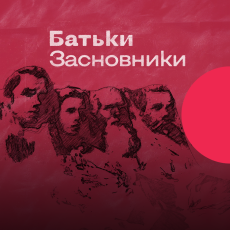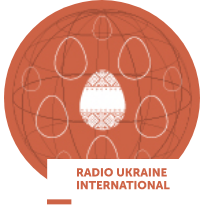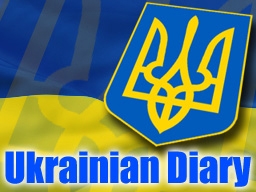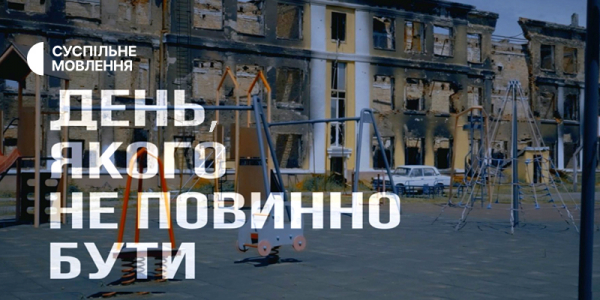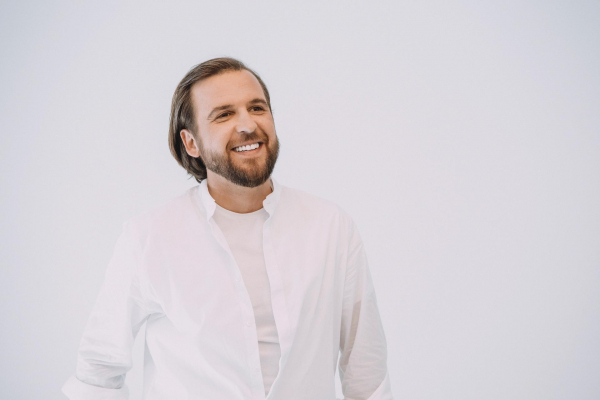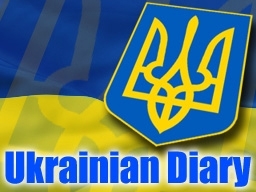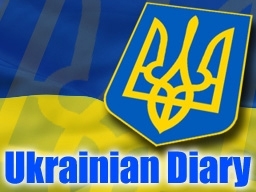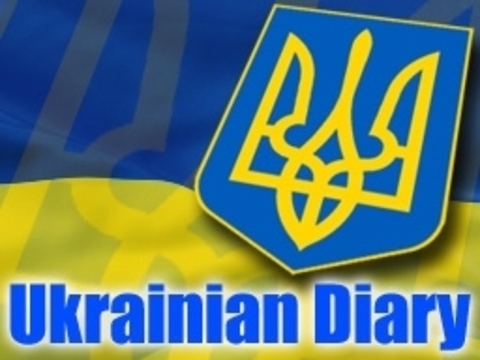Ukraine demanded non-recognition for Russian election in the illegally annexed Crimea
As Russia is gearing up for the presidential elections on March 18, Ukraine questions the legitimacy of the voting process and its outcome. Declaring the future elections procedure in the Crimean peninsula illegal and refusing to acknowledge its legitimacy, the Ukrainian leadership has called on its Western partners to do the same, in multiple statements and addresses. Thus, meeting with the ambassadors of G7 countries in Kyiv on Wednesday, president Poroshenko has prevented partner countries from sending observers on their behalf to monitor the election in Crimea, underlined the importance of one-voice policy on Crimea election.
High Representative of the EU for Foreign Affairs and Security Policy in Kyiv Federica Mogherini had come to Ukraine for a working visit a few days before the fourth anniversary of the illegal annexation of Crimea and Sevastopol by the Russian Federation. Mogherini said that the European Union’s position on Russia remained unchanged – noting the importance of fully implementing the Minsk agreements, and ending the illegal annexation of Crimea.
“We do not recognize annexation of Crimea, we will continue our work on non-recognition policy of the annexation and we will continue to condemn this violation of international law. We do not recognise the so-called elections there and we remain committed to full implementation of our non-recognition policy through sactions,” – said EU High Representative Federica Mogherini, communicating the firm stance of the EU on supporting Ukraine.
On Friday, on the anniversary of the imposed referendum, which led to the illegal annexation of the peninsula, First Deputy Minister of Information Policy Emmine Jeparova commented: “Russia’s occupation of Crimea meant its violation of 407 international and bilateral agreements with Ukraine, including the Budapest memorandum. The transition did not happen overnight, as even during 2014 through 2016 Russia adopted about 600 legislative and regulative acts in order to integrate Crimea into the Russian Federation’s legal field. Fortunately, the world is unanimous in the nonrecognition of the annexation, while the so-called referendum of March 16 did not change the status of the peninsula as Ukrainian territory for the international community. This has continuously and officially been voted for and reinstated by the majority of representatives of other countries.”
Meanwhile, representatives of the Crimean Tatar self-governing body Mejlis and Crimean Tatar activists have met with EU ambassadors in Kyiv on Tuesday, discussing the protection of human rights in the occupied Crimea, and the creation a full-fledged Crimean-Tatar autonomy. Commenting on the matter, Chairman of the Mejlis of the Crimean Tatar People, MP Refat Chubarov said: “We’ve presented the principles that, being shaped into law, will determine the life in the occupied Crimea. Of course, these principles focus on the Crimean Tatars’ right to self-determination.” The creation of the Crimean Tartar autonomy would be impossible without amending the Ukrainian constitution, he added.
Earlier, the Mejlis leaders had informed that ahead of the presidential election in Russia, agitators for the regime were trying to provide higher presidential turnout in Crimea, while putting the local population under tremendous pressure.
According to Chubarov, even students and pupils were involved in this, being demanded to provide the turnout of their parents’ election. The Crimean Tatar community, for their part, have also been one of the target groups, as agitators, according to him, wanted to demonstrate that Crimean Tatars, having neglected the co-called “referendum” back in 2014, had changed their minds concerning Russia.
The situation in the Donbas conflict zone, weekly roundup
The situation in the war zone in Eastern Ukraine has relatively improved over the past week. Generally, recommitment to ceasing fire within the so-called "spring truce" established by the Trilateral Contact Group on conflict settlement at midnight on March 5 has been sporadically observed. The dynamics of enemy strikes in the affected areas, and the respective number of casualties among Ukrainian servicemen have been quite tangible in the beginning, and decreased by the end of the week. The enemy’s use of weapons that are proscribed by Minsk has also been recorded by the Ukrainian side. Remarkably, in the 1st part of the day on Thursday, the Defense Ministry’s press service recorded complete truce observance, yet in the afternoon it had been breached with a mortar shelling by Russia-backed militants in vicinity of Donetsk.
Alexander Hug, the OSCE SMM’s Principal Deputy Chief Monitor, explained the sharp edges of the current situation regardless of large-scale truce observance, namely the recent attacks upon the workers of Donetsk water filtration station from the separatists’ side which jeopardize people’s essential living conditions. “These attacks not only threaten the lives of brave men and women working at the Donetsk filtration station, they threaten the station itself upon which an estimated 400 000 people on both sides of the contact line depend for clean drinking water,” said Alexander Hug at his briefing in Kyiv on Friday, noting nevertheless a significant decrease of hostilities that the Donbas zone counteraction has lastly displayed. He also yet again remarked the negative effect of the proximity of the sides in the conflict in relation to human factors: “In Stanytsia Luhanska for example there is less than 300 m separating the sides, so they can literally see one other. They are within small arms weapons reach, the least provocation can escalate out of control; a gesture, a flag, or a shouted remark can lead to a round of fire in anger followed by retaliatory fire, leading possibly to the use of available heavy weapons.”
Following the TCG meeting in Minsk on Wednesday, OSCE Chairperson-in-office Martin Sajdik had also confirmed the reassuring dynamics in Ukraine’s East: «Recently it has become possible to significantly reduce the average number of ceasefire violations to one of the lowest levels over the past two years,» reads his press statement. The number of victims among civilians has also decreased substantially compared to the corresponding period in the previous year, according to him. «This clearly demonstrates that with the political will numerous achievements can be accomplished,» he said.
Ukraine’s envoy in the humanitarian subgroup of the TCG, First Deputy Speaker of the Parliament Iryna Herashchenko, for her part, stated after the meeting that the Ukrainian side was ready to exchange over 20 people, who’d been detained in Donbas for participating in the illegal armed groups, in order to release the Kremlin prisoners held in Russian prisons. Herashchenko told journalists about regrets concerning the poor progress in the efforts to speed up the issue of prisoner exchange.
Ukraine hopes Russia’s alleged use of banned chemical weapons in the UK would provoke reaction by the West
Ukrainian Foreign Minister Pavlo Klimkin has expressed hope that the shocking use of banned chemical weapons for the assassination in Salisbury serves as a “wake-up call” for the Western states. “This should lead to a response that would pile more pressure upon Russia over its disregard for international law and norms”, - reads the official response from the Ukrainian Foreign Ministry. Expressing full solidarity with the UK, Ukraine’s Foreign Minister Pavlo Klimkin wrote: “This is beginning to feel like a real wake-up call for the West — I really hope it is. But the West must now respond in a way that will make Russia feel the consequences of their actions.” Noting that Ukraine joins the UK and allies in “pressing for the strongest response from the ‘rules based’ community,” Mr Klimkin stressed that “The Kremlin does not respect international borders or rules and there are no ends to which they will not go to further their own interests if they think they can get away with it.” He added: “In Ukraine we understand this better than most. We have had the Crimean Peninsula illegally occupied by Russia for over four years now. And shortly after attempting to annex Crimea Russia also invaded Donbas in the East of Ukraine where Russia’s support for its proxies has cost the lives of over 10,000 Ukrainians, injured 25,000 and driven 1.8 million from their homes.” Boycotting this summer’s Fifa World Cup championship hosted by Russia is among the measures the international community could take, according to Mr Klimkin. "The free world must stand very strong and act in a very decisive way to make it clear to Russia that the type of terrorist criminality they practice will no longer be tolerated. This must be done before it is too late," Ukraine's top diplomat concluded. As we reported earlier, the United Nations Security Council had held an emergency meeting on Wednesday on the suspected poisoning of a former Russian spy and his daughter in Britain. Former spy Sergei Skripal and his daughter Yulia remain in critical condition after being allegedly exposed to a nerve agent in Britain on March 4th. Britain holds Russia responsible, saying that the nerve agent ‘Novichok’ was developed by the Russian military. The British Permanent Representative to the United Nations, Julian Braithwaite, said Wednesday that Russia was involved with the poisoning of ex-colonel of GRU Sergei Skripal, thereby violating Article 2 of the UN Charter. He said this at the meeting of the UN Security Council on March 14: “The council and the United Nations General Assembly have decried Russia's violations of international law with alarming regularity. Its reckless behaviour is an affront to all this body stands for. In Syria the Council has repeatedly addressed violations carried out or facts by Russia, resulting in thousands of deaths and human suffering. (00:42) In Crimea Russia’s illegal annexation has given rise to capital violations including enforced disappearances. And Russian support for illegal armed groups in eastern Ukraine has been responsible for thousands of deaths. On March 4th, a military grave nerve agent tied to Russia was used on the streets of the UK seemingly in attempt to kill Sergei Skripal and his daughter Yulia. My government has concluded that it is highly likely that Russia is responsible.”
Presenting the UK case to the UN security council on Wednesday, Britain’s deputy permanent representative, Jonathan Allen, said Russia was “in serious breach of the Chemical Weapons Convention through its failure to declare the Novichok programme”. Britain was braced for a showdown with Russia on Wednesday after a midnight deadline set by Prime Minister Theresa May expired without an explanation from Moscow about how a Soviet-era nerve toxin was used to strike down a former Russian double agent. Britain's deputy UN ambassador, Jonathan Allen, told the Security Council that there were "2 plausible explanations: either it was a direct attack on his country by Russia, or Russia had lost control of a military-grade nerve agent which they had developed." He also said Russia "either did not care that the weapon used would be traced back to them, or mistakenly believed they could cover their traces." The US and European nations are calling for help from the organization to investigate the incident.
Review of athletic victories at the PyeongChang Winter Paralympics
The team of Ukraine has been among the first rates in the medal standings at the XII Winter Paralympic Games in PyeongChang, South Korea. Let’s review some of the national team’s victories claimed in the past week.
On Tuesday, Taras Rad, resident of Western Ukrainian city of Ternopil and the youngest member of the national team, has claimed the fourth gold medal for Ukraine at the Paralympics, winning the men's 12.5 km biathlon race. After finishing ahead of two U.S. athletes, who subsequently took silver and bronze, here’s Taras sharing his impressions with the media: “While still on the race, I spotted the preliminary results on a video screen showing I was one minute ahead of my rivals. I went ahead overwhelmed with joy that turned to real euphoria at the finish line. I am very grateful to everyone who’ve supported me.”
On the same day, biathlete Oksana Shyshkova took victory in the 10 km race for visually impaired runners. Igor Reptukh, who’d won a bronze medal on the first day of the games, also took gold for cross-country skiing in the 20-kilometer free technique sprint among standing men. Lyudmila Lyashenko added a bronze medal to the team’s score for cross-country skiing in free technique 15-kilometer sprint among standing women.
As of Friday, the Ukrainian Paralympic team gained, all in all, 19 medals, including six in gold, six silver and seven bronze medals. The Winter Paralympics are being held until March 18. This year, 46 countries are competing for 80 medals in six key categories: alpine skiing, biathlon, cross-country skiing, ice sledge hockey, snowboarding and wheelchair curling. The Ukrainian national team consists of 20 athletes this year, who are competing in biathlon, cross-country skiing and snowboarding.
